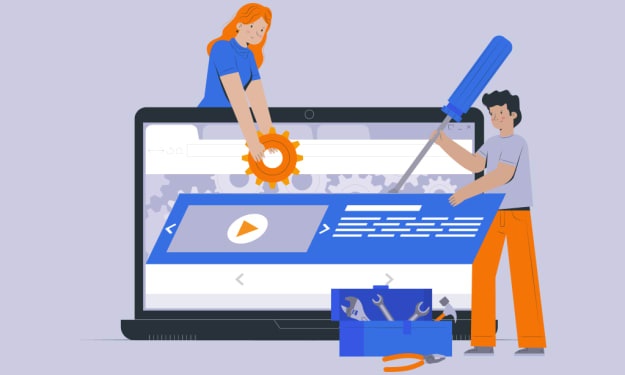Digital taxation is an innovative concept.
Businesses that are registered for VAT have integrated Making Tax Digital into their day-to-day operations, and it is anticipated that this trend will continue for the foreseeable future.

It is anticipated that the legislation will become operational in 2024, and that it will be applicable to individuals who engage in self-employment and submit a tax refund known as a Self Assessment.Numeric, as a company, has made it a top priority to investigate and invest in solutions that are compliant with the regulations of HMRC so that we can offer our customers a transition into the digital age that is both smooth and easy to make. Because of this, we are able to provide the highest possible level of service to our customers.
Making Tax Digital is one component of the government's efforts in the United Kingdom to make it easier for businesses to handle their tax obligations while also keeping track of their other financial obligations. The overall goal of these efforts is to make it less difficult for businesses to comply with their tax obligations. The Making Tax Digital initiative is the other part of these efforts, and it is an important one. 2015 was the year that served as the starting point for putting this plan into action.
To be succinct, the operation of the tax system is going to be significantly altered as a result of this policy, which will bring about significant changes. A method that is more effective, user-friendly, and efficient overall is created as a result of this, which is to the benefit of taxpayers as well as those who administer taxes.
In addition to the amazing precision that digital records bring, the support that is integrated into cloud accounting software (such as Xero and QuickBooks) will result in a significant reduction in the amount of tax that is spent as a result of avoidable mistakes. The bottom line will be significantly impacted as a consequence of this. Despite the fact that digital records bring an even higher level of accuracy, this will continue to be the case. Due to the fact that HMRC receives the information directly from your digital records, the possibility of the information being lost while it is being transmitted is significantly reduced.
VAT
Businesses that are VAT-registered and have a taxable turnover that is greater than the VAT threshold (which is currently set at £85,000) are required, in accordance with the regulations known as Making Tax Digital, to keep digital records and to submit their VAT returns using software-based systems. The VAT threshold was recently raised to its current level.
You have the option to immediately sign up for the Making Tax Digital service if you would like to do so if your annual turnover is less than the VAT threshold for small businesses. If this is the case, you are considered a small business. On the other hand, you are required to sign up for the service if your annual turnover is higher than the threshold for VAT that applies to small businesses.
Businesses that are registered for VAT and have a taxable turnover of less than £85,000 will be required to comply with the Making Tax Digital standards for their first return beginning on or after April 2022. This requirement will apply to businesses that have a taxable turnover of less than £85,000. After April 2022, any company that wants to register for VAT must comply with this requirement in order to do so. If their taxable turnover is less than £85,000, then they will be required to comply with the Making Tax Digital standards for their first return beginning on or after April 2022. However, if their taxable turnover is more than £85,000, then they will not be required to comply with these standards. This prerequisite is only going to apply to them if their taxable revenue is less than £85,000 per year. Companies that are VAT registered but have an annual taxable revenue of less than £85,001 are examples of candidates that meet the requirements to be eligible.
Earnings Taxes, which are subcategories of income taxes, are levied on people on an individual basis and are payable by them.
Individuals who are self-employed and landlords who earn more than £10,000 per year are expected to be required to use MTD for their income tax returns beginning on the first day of their next accounting period that begins on or after April 6, 2023. This change in the law is scheduled to take effect in 2023.
Corporations, along with other types of businesses, are subject to a specific category of taxation known as the "Corporation Tax." This category of taxation can also apply to other types of businesses.
The government has proposed offering companies the opportunity to take part in a pilot project for Making Tax Digital (Corporate Tax) prior to the year 2026 in order to delay the implementation of a requirement to use technology until after the year 2026. This would allow the government to delay the implementation of a requirement to use technology until after the year 2026. The government would then be able to postpone the implementation of the mandate as a result of this.





Comments
There are no comments for this story
Be the first to respond and start the conversation.